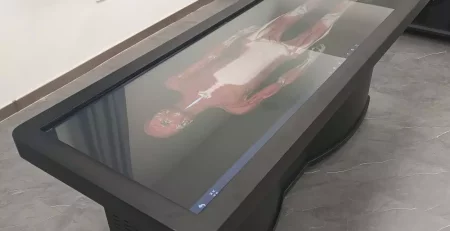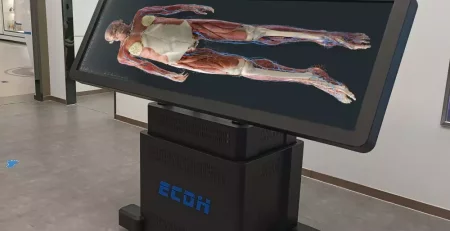Virtual Precision: How the 3D Anatomy Table Is Reshaping Medical Education
Virtual Precision: How the 3D Anatomy Table Is Reshaping Medical Education
Date:
Medical education is undergoing a subtle but powerful transformation. A key innovation at the center of this change is the 3D anatomy table, a technology that’s replacing limitations with clarity. Among the most sophisticated versions available is the one developed by DIGIHUMAN, a brand dedicated to translating digital anatomy into real-world learning impact.
Table of Contents
ToggleDIGIHUMAN: Accuracy Meets Visualization
DIGIHUMAN brings the human body to life through digital precision. With virtual dissection tables and 3D-printed anatomical models capable of revealing structures down to 30 microns, the company sets a new standard in accuracy and detail. Our system isn’t just detailed—it’s verified. Every anatomical section is reviewed by the Committee of Experts from the Chinese Society for Anatomical Sciences. This attention to precision allows learners to explore the human body in ways physical specimens cannot match.
Beyond Dissection: The 3D Anatomy Table as an Interactive Lab
Instead of working with preserved tissue, students now explore anatomy through interactive 3D layers. A 3D anatomy table offers views from any angle, enabling deep understanding of systems, muscles, vessels, and organs without needing a scalpel. It’s not just a visual upgrade—it’s a shift in how students engage with medical content. Interactive features allow users to isolate regions, simulate injuries, and study surgical pathways in a hands-on, digital format.
Built for Collaboration with Educators
What makes DIGIHUMAN’s anatomy solution stand out is its close development process with anatomy instructors and curriculum designers. Every tool in the platform supports clear instruction, active learning, and retention. Instead of forcing educators to adapt to technology, this system adapts to the realities of medical teaching. The 3D anatomy table becomes more than equipment—it becomes an integral part of the classroom.
A New Standard in Clinical and Academic Training
Whether it’s used in medical schools, surgical training centers, or research institutes, the 3D anatomy table supports a wide range of learning styles and objectives. It provides consistency across classrooms and geographic locations—especially vital in remote or hybrid education settings. Learners gain the freedom to explore, experiment, and analyze without the constraints of limited cadavers or lab hours.
Conclusion
DIGIHUMAN isn’t merely providing digital tools; it’s creating an ecosystem where anatomy is accessible, repeatable, and visually rich. The 3D anatomy table we’ve developed is more than a product—it’s a response to the evolving needs of medical science education.
Related Posts
 Blog
BlogAnatomy as a Major: Bridging Education and Innovation in Medical Training
Is anatomy a major? Absolutely, anatomy is a major that offers students a comprehensive understanding of the human body, essential...
 Blog
BlogUnderstanding Systemic Anatomy: A Comprehensive Overview
Systemic anatomy is a specialized branch of anatomical science that focuses on the study of the various systems within the...
 Blog
BlogIs Anatomy on the MCAT? Understanding Its Importance
Is anatomy on the mcat? The question of whether anatomy is on the MCAT can be answered with a resounding...

